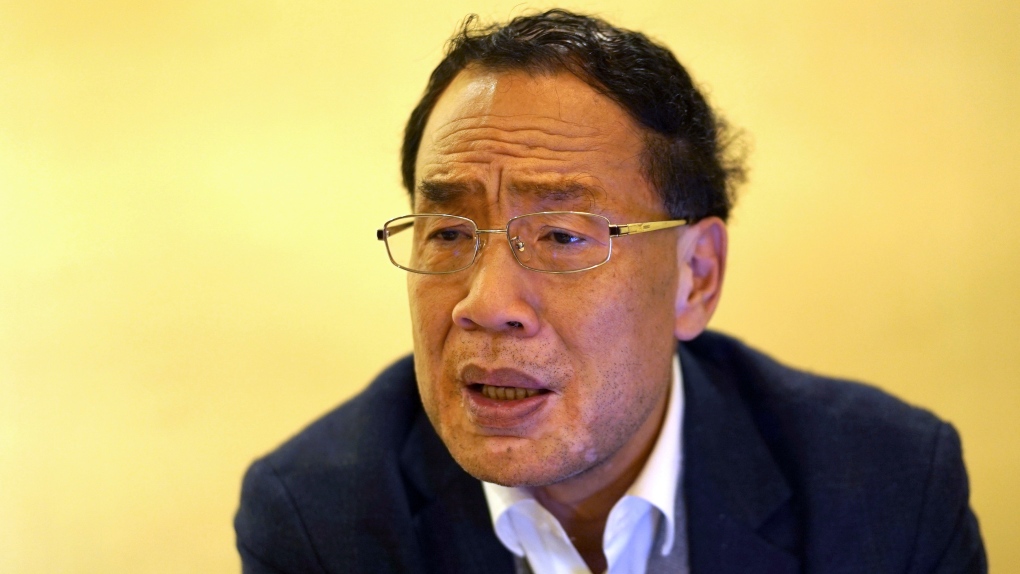The WHO estimates that people aged 60+ will be approximately 22% of the global population by 2050.
Momo Productions | Digitalvision | Getty Images
People are living longer now than ever before. As medical technology advances and medicines become more effective, mortality rates have also fallen.
While this is a major success for humanity, signaling that our work to improve the quality of life has paid off in creating greater longevity, it leads to another problem: caregiver burnout.
Caregiving labor is expensive and unaffordable for many families. Additionally, in many Asian societies, it is commonly valued for families to keep elderly loved ones at home and personally care for them as they age.
“We have observed in clinical settings that these caregiving adults are at risk of caregiver burnout, and experience a sense of vulnerability as they realize they would also be going through an aging process in the next 20-30 years of their lives,” John Wong, director of the National University of Singapore’s Mind Science Center, told CNBC Make It.
The World Health Organization estimates that people over the age of 60 will be approximately 22% of the global population by 2050.
“The number of people aged 65 years or older worldwide is projected to more than double, rising from 761 million in 2021 to 1.6 billion in 2050,” according to a 2023 report by the United Nations, adding that the population of people aged 80 and above is growing even faster.
Some Asian societies are leading the trend.
“By 2050, roughly 40 percent of the populations of Hong Kong, South Korea and Japan are expected to be 65 and older,” according to the World Economic Forum.
‘Sandwich generation’
Along with people living longer lives, fertility rates have also fallen, leading to smaller nucleus families.
Not only will there be new challenges for the world’s current systems and economies, it will also largely impact future generations.
“There’s this tendency in the welfare state to sort of outsource the elderly care,” Jan-Emmanuel De Neve, director of the Wellbeing Research Centre at Oxford University told CNBC Make It.
“That tends to lead to issues of isolation, elderly people feeling useless, whereas there’s so much to offer the society and the younger generations.”
Although home-care for the elderly improves their wellbeing, it can also place pressure on younger generations.
“As society responds to an aging population with increased care needs for frail seniors, the burden of care for the elderly is usually borne by the sandwich population,” said Wong, who is also an associate professor at the Yong Loo Lin School of Medicine in NUS.
The so-called sandwich generation refers to middle-aged people who have elderly parents to care for, as well as their own children who are still dependent on them.
In addition to looking after their parents and children, both emotionally and financially, they also have to care for themselves while pursuing their careers.
The younger generations have to support their elderly parents or grandparents. If they also have their own young children, they would be squeezed as the ‘sandwich generation.’
Jialu Streeter
Executive Director of the Stanford Institute for Economic Policy Research
“One major difference between the Baby Boomer vs the Millennials/Gen Z generation could also be the increasing emphasis and pressure to develop a personal career, realizing personal aspiration, ahead of the family needs,” Wong said.
“This could create undue social pressure on the Millennials and Gen Z,” he added.
Baby boomers refer to people born between 1946 to 1964. Millennials are those born between 1981 and 1996, while Generation Z are people born between 1997 to 2012, according to the Pew Research Center.
Preventing caregiver burnout
Here are 3 tips to help manage the pressure:
- Prepare ahead of time
- Have honest conversations with the family
- Don’t forget self-care
In preparation for this time of life, people should look to have honest conversations with their family members.
“This would entail defining one’s family value system, setting out personal goals, life aspirations, allocating and committing personal resources,” Wong suggested.
He highlighted that setting boundaries are important, but parents and their children need to have these discussions ahead of time to prevent burnout.
Additionally, “plan to have honest conversations with family members, spouse/partners, to discuss how to share the caregiving tasks,” said Jialu Streeter, executive director of the Stanford Institute for Economic Policy Research.
“It’s very challenging, but don’t forget to self-care. A lot of times, we think self-care is selfish. It’s the very opposite. Only when we take good care of ourselves then we have the mental and physical capacity to take care of our loved ones,” Streeter added.
Integrating the elderly in society
“The elderly don’t necessarily have to be a burden on young or society,” De Neve told CNBC. “For the well being of the elderly, we have to think very creatively and practically about ways of integrating them back into meaningful, useful ways of contributing to society.”
De Neve suggested that younger generations and governments should think about solutions on how to reincorporate the elderly into society so that they stay active, healthy, and valuable members of society.
One suggestion is to keep nursery schools and elderly care homes in the same building.
“Think of all the benefits … the widening of [the] horizons for the small kids, and at the same time, making the elderly feel useful as they see life blossoming through the eyes of a two year old,” he added.
Want to make extra money outside of your day job? Sign up for CNBC’s new online course How to Earn Passive Income Online to learn about common passive income streams, tips to get started and real-life success stories. Register today and save 50% with discount code EARLYBIRD.
Plus, sign up for CNBC Make It’s newsletter to get tips and tricks for success at work, with money and in life.







